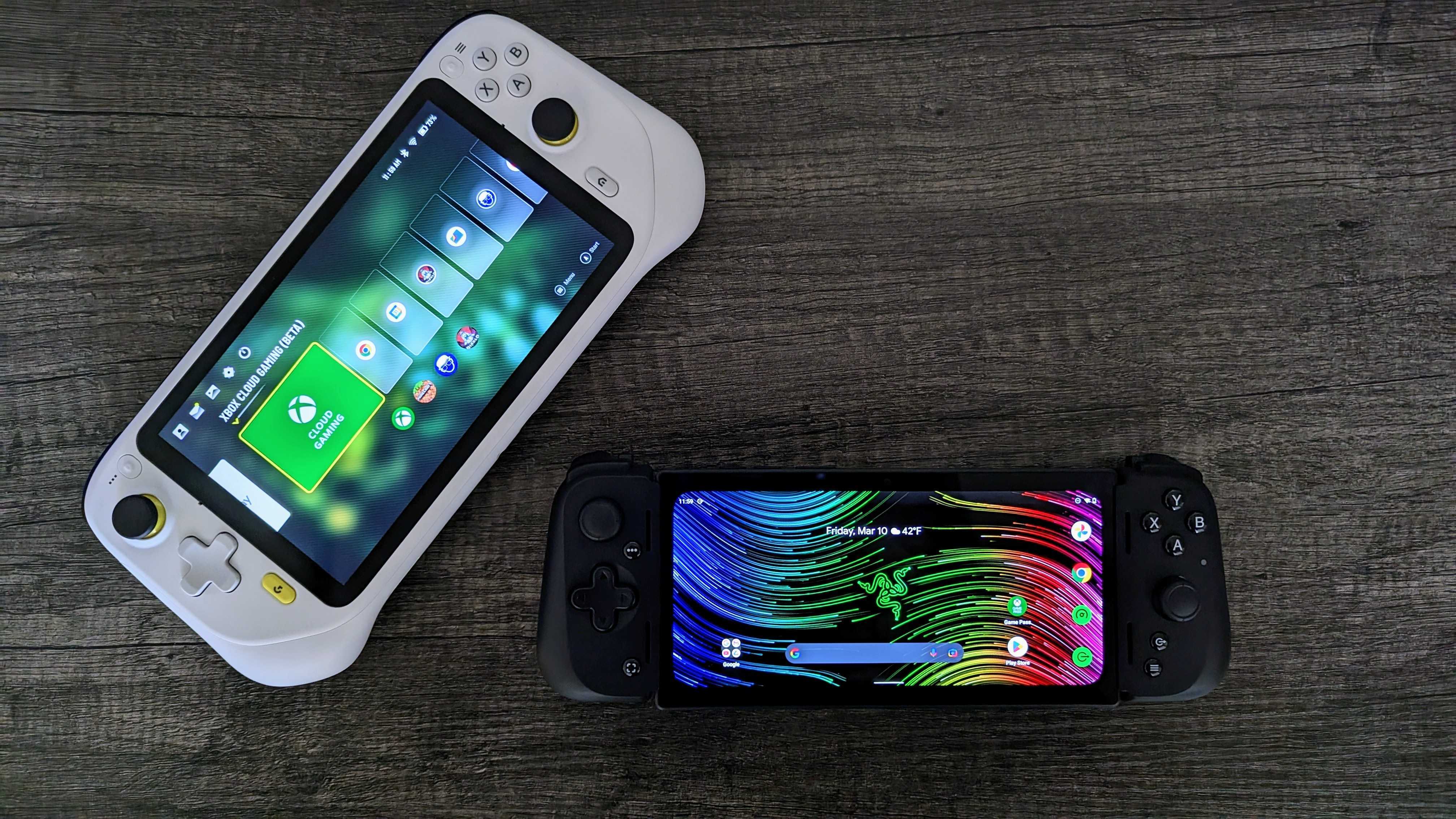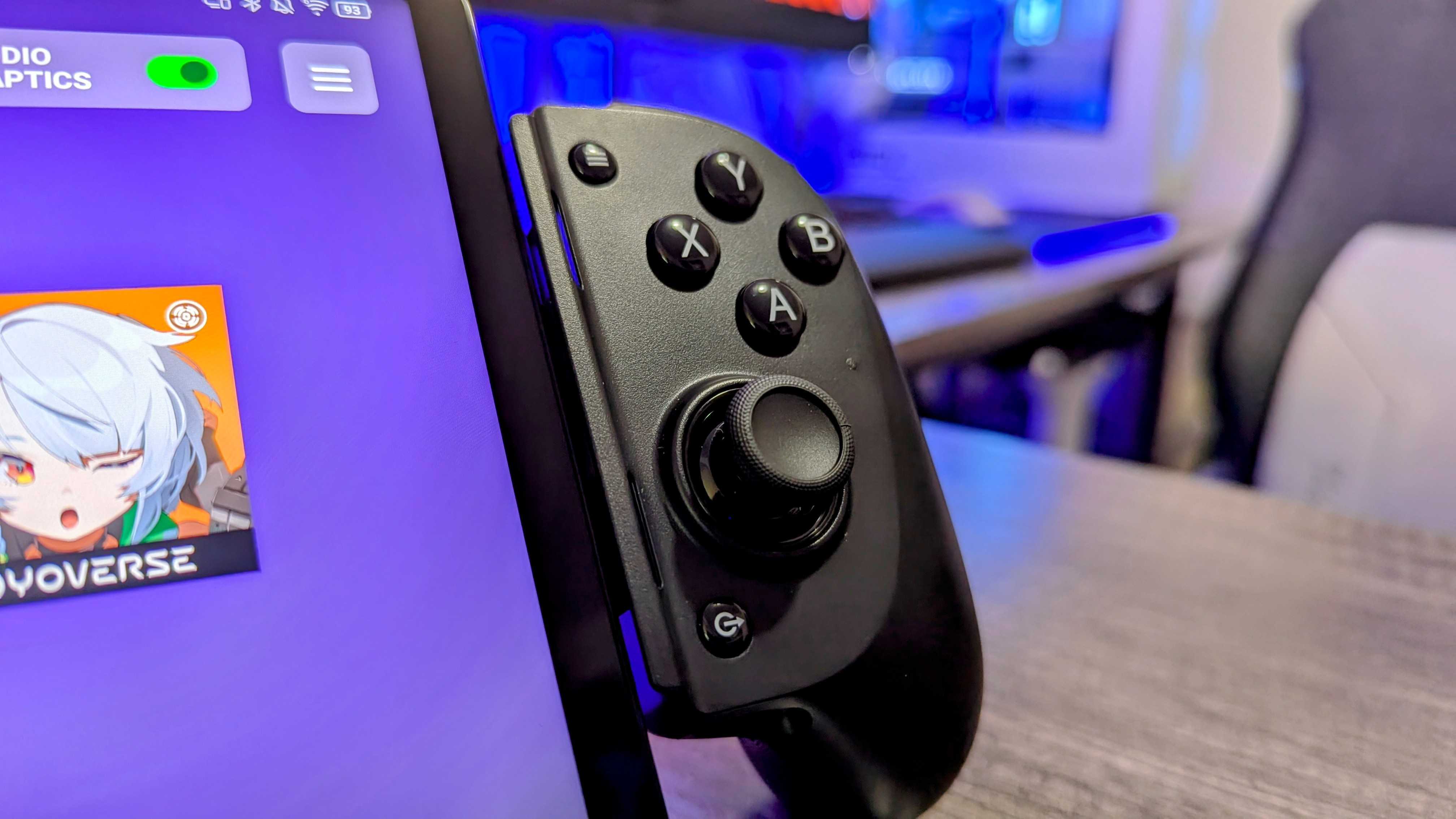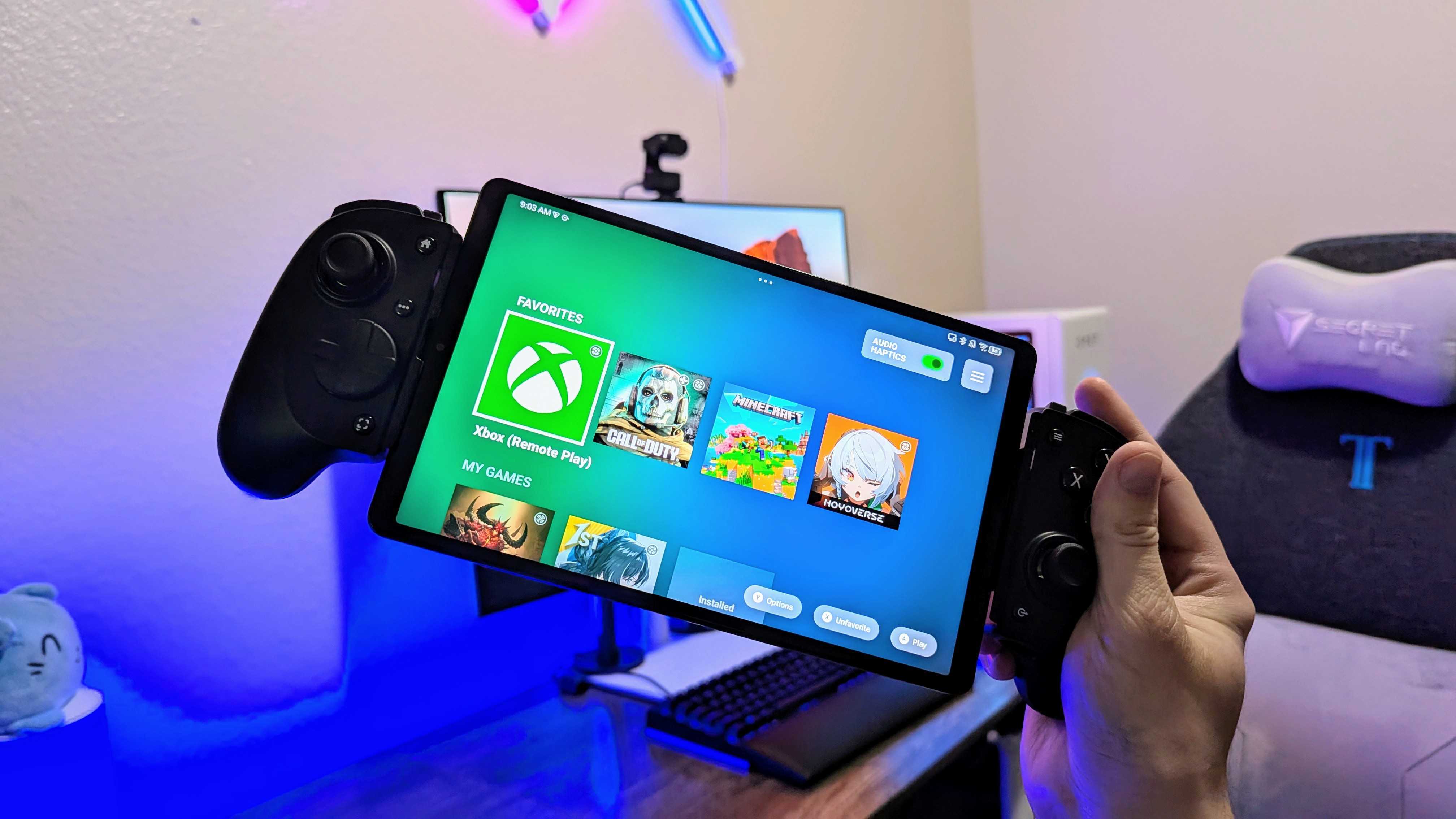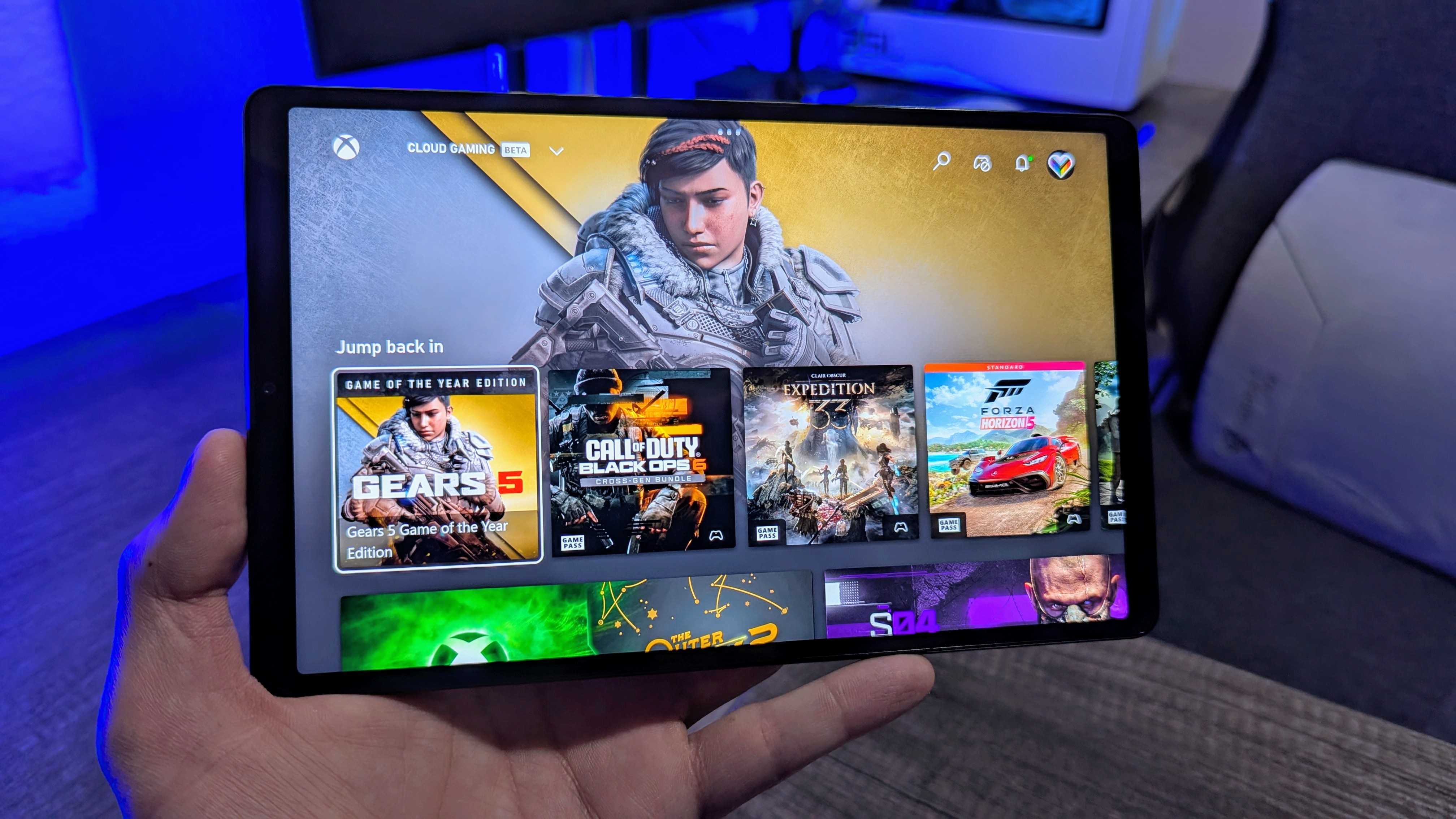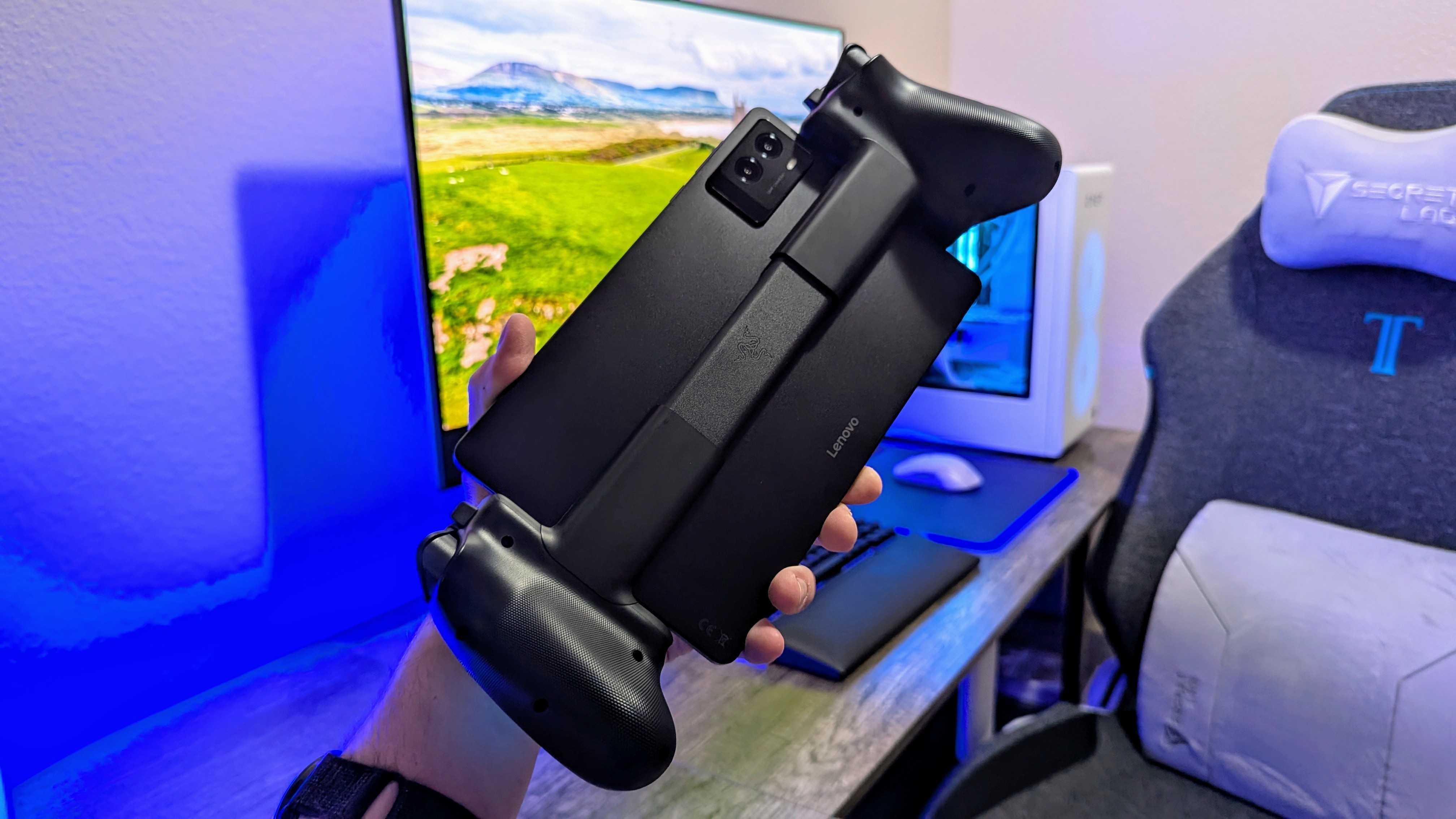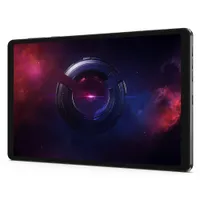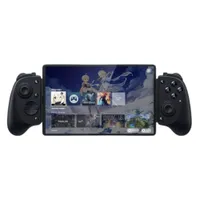More than my Switch or ROG Ally, a tiny tablet and mobile controller has been my favorite gaming handheld lately
I had to make it myself, but I finally found the perfect Android gaming handheld.
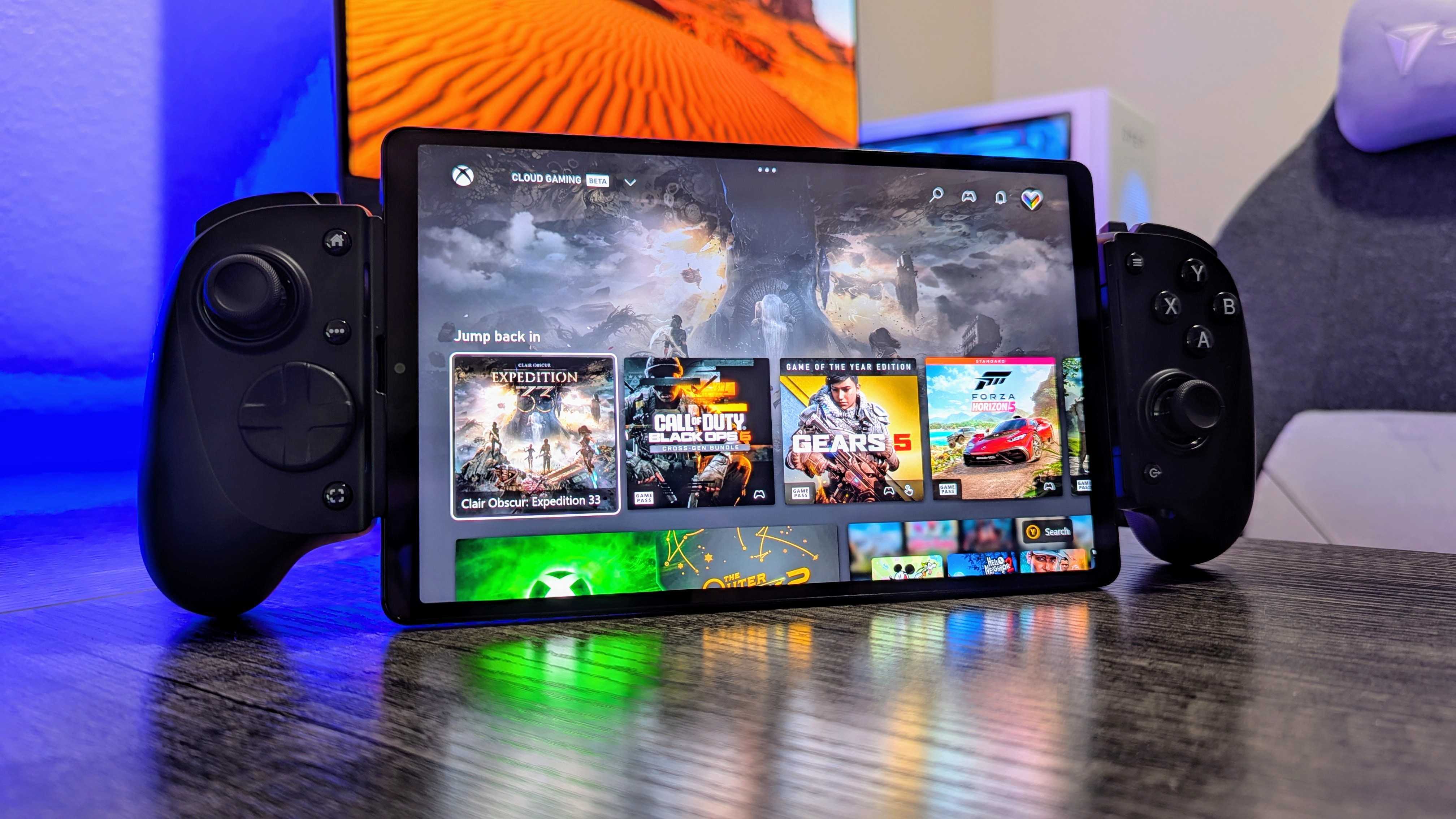
All the latest news, reviews, and guides for Windows and Xbox diehards.
You are now subscribed
Your newsletter sign-up was successful
In the rapidly expanding world of gaming handhelds, conversations are dominated by the Nintendo Switch, Steam Deck, and Windows PC gaming handhelds like the ASUS ROG Ally.
Whether it's a carefully curated experience with legendary exclusives, all the versatility and control of a gaming PC in your hands, or something in the middle, there's a gaming handheld for everyone these days.
Lately, though, the gaming handheld I've reached for more than my Nintendo Switch OLED or even my ASUS ROG Ally X doesn't fall into any of these categories, and instead belongs to an oft-forgotten and neglected group.
I've elevated the mobile gaming experience to all-new heights by combining the best Android-powered gaming tablet and the best mobile gaming controller to create something with a ridiculous amount of versatility, and it's quickly becoming one of my favorite ways to play.
A brief history of Android gaming handhelds
One of the first high-profile Android gaming handhelds was the Logitech G Cloud that I reviewed, and it's still a great device for cloud gaming if you can find it on sale.
Then I reviewed the Razer Edge Android handheld back in 2023, and a lot of it was discussing the viability of these mobile gaming devices and what problems needed to be addressed for a "Razer Edge 2" to truly succeed.
Major companies aren't taking a shot at making a great Android gaming handheld anymore.
Fast forward to now, and... nothing of note has happened. Sure, our smartphones have gotten more powerful, mobile app stores like the Google Play Store have gotten bigger and more ambitious games, mobile controllers have dramatically improved, and cloud gaming has continued to get better with larger libraries and smoother performance.
All the latest news, reviews, and guides for Windows and Xbox diehards.
No one is really taking a shot at combining all of these parts into one cohesive whole. It makes sense — most people have powerful phones in their pocket and can buy a mobile controller if they like, and hardcore gamers are more likely to buy a Switch or a more powerful PC handheld.
Does that mean there's no place for an Android-powered gaming handheld? I think there is, so I took matters into my own hands.
My ultimate pairing of tablet and controller
I went hands-on with the last-gen Razer Kishi Ultra mobile controller before my colleague reviewed it, and Razer used an iPad Mini to demo the peripheral. My first thought back then: "This is what the Razer Edge should be."
The ~8-inch display of the iPad Mini was the perfect size for mobile gaming, mirroring the best gaming handhelds but with far less bulk attached to it. Mobile controllers can also prioritize ergonomics without worrying about the internals or thermal management of your device, so this combination was immediately more comfortable than any dedicated handheld I've used.
Then I had an opportunity to test the Lenovo Legion Tab, an Android-powered iPad Mini competitor with an 8.8-inch display — but this tablet was designed from the ground up with gaming in mind.
When I tested the Razer Kishi Ultra with the iPad Mini, I knew it's what the Razer Edge should've been.
In my Lenovo Legion Tab (Gen 3) review, I praised the design and performance. It's a fantastic device, and I couldn't ask for anything better to make my handheld dream a reality.
I then reviewed the Razer Kishi V3 Pro and praised it just as heartily. Finally, I had the best gaming tablet and the best mobile controller in one place, and it proved to me that I was right all along — the potential was always there, but companies aren't taking the risk.
Why I actually love this gaming experience
Mobile gaming gets a lot of flak, and there are a lot of good reasons for it, but there are also a lot of good reasons why mobile gaming is so successful.
With Android, you get full access to the growing library of native games (which includes more "full" console and PC games every day), a thriving ecosystem of emulation apps and communities to play classic games, and cloud gaming platforms to play practically everything else.
With the Legion Tab gaming tablet, you get a spacious, vibrant, and smooth 165Hz display, top-notch performance, and far superior battery life to any PC handheld.
With the Razer Kishi V3 Pro mobile controller, you get the surprisingly great Razer Nexus app, high-quality haptic feedback (including Razer's audio-to-haptics), Razer PC Remote Play for streaming from your gaming PC (but matched to the resolution and refresh rate of your device), and the ability to map your physical controls to the touch controls of any game that doesn't natively support controller input.
I played a lot of Minecraft, tried Zenless Zone Zero for the first time (which just released on Xbox, by the way), kicked a lot of butt in Call of Duty: Mobile, and streamed a lot of games through Xbox Cloud Gaming.
I can revisit the legendary Star Wars: Knights of the Old Republic games (one of many titles available natively on Android), emulate some classic Nintendo games from long-gone consoles, and even hook the Legion Tab to an external display, keyboard, and mouse and go full desktop mode (or stream mouse and keyboard games).
Xbox Cloud Gaming was especially handy to have around, as it seems the service's performance and stability have improved a lot lately. I had no issues playing every game I threw at it, including Clair Obscur: Expedition 33.
Of course, I could also download NVIDIA GeForce Now for even more games and better performance. Cloud gaming is good enough now that games often look and run better than they do natively on PC handhelds, and there's a healthy library of games to play when you don't have a good internet connection.
Only problem? This handheld isn't cheap
Honestly, I think this is my new favorite gaming handheld. I know that may be blasphemous to say, but when it comes to simply having fun playing the games I want, this has been the best solution lately.
If Google were to add native controller support to Android and Gboard, game publishers would bring more full games to the Google Play Store, and device manufacturers would take this category seriously; there could be a lot of reasons not to buy that new ASUS ROG Ally.
My setup can be considered the peak, though, so it's not cheap. The Lenovo Legion Tab (Gen 3) is $549.99 at Lenovo, which is a very fair price for such a capable tablet, while the Razer Kishi V3 Pro runs for $149.99 at Amazon, on the pricier side for a mobile controller.
This isn't the only way to make a gaming handheld of your own, though. Any smartphone or mini tablet would do, and there are plenty of great (and more affordable) mobile controllers.
Lenovo Legion Tab (Gen 3)
Buy now: $549.99 at Lenovo
Designed with gaming in mind, the Legion Tab is honestly just awesome as a tablet. Media consumption, casual and hardcore gaming, notetaking, this is the best Android-powered option for those who want a mini tablet... And you can make a pretty great handheld out of it.
Windows Central review ⭐⭐⭐⭐½
👉See at: Lenovo.com
Razer Kishi V3 Pro
Buy now: $149.99 at Amazon
The ergonomics of a full-sized controller with the latest and greatest controls, including cutting-edge anti-drift TMR thumbsticks, the Kishi V3 Pro has it all. It's truly the best mobile controller, but you can also get the Kishi V3 for 95% of the experience at 66% of the cost.
Windows Central review ⭐⭐⭐⭐⭐
👉See at: Amazon.com or Razer.com
👀Also consider: Razer Kishi V3 for $99.99 at Amazon or $99.99 at Razer

Zachary Boddy (They / Them) is a Staff Writer for Windows Central, primarily focused on covering the latest news in tech and gaming, the best Xbox and PC games, and the most interesting Windows and Xbox hardware. They have been gaming and writing for most of their life starting with the original Xbox, and started out as a freelancer for Windows Central and its sister sites in 2019. Now a full-fledged Staff Writer, Zachary has expanded from only writing about all things Minecraft to covering practically everything on which Windows Central is an expert, especially when it comes to Microsoft.
You must confirm your public display name before commenting
Please logout and then login again, you will then be prompted to enter your display name.
